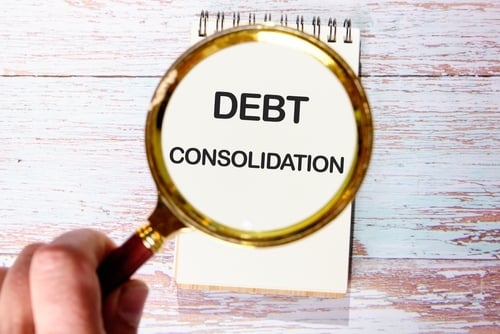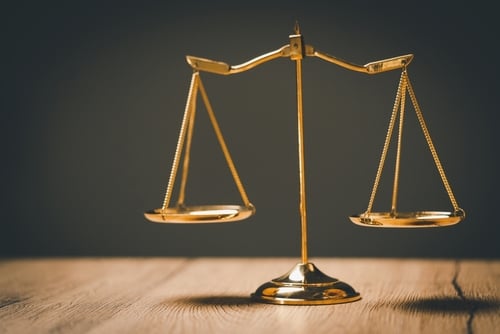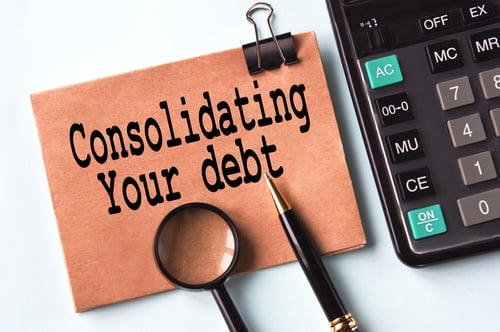Is a Debt Consolidation Loan Right for Me?
A debt consolidation loan (DCL) consolidates multiple debts into one single loan, typically resulting in a lower interest rate and monthly payment. A DCL provides the dual benefit of streamlining the repayment process while simultaneously lowering interest expense and the total amount repaid over time.
Types of DCLs include personal loans, promotional low-interest rate credit card balance transfers, home equity loans and student loan consolidations. DCLs are popular for the convenience and debt savings that they provide, but they’re not for everyone. Is a debt consolidation loan right for you? Let’s take a closer look.

Debt Consolidation Loans
Debt consolidation fixed-rate loans are available through banks, credit unions, and online lending sites – however, those individuals with excellent credit scores of 700 or higher should investigate debt consolidation through promotional zero percent interest rate balance transfer offers on credit cards.
Though these low introductory rates often expire within twelve to eighteen months and usually come with balance transfer fees of 3-4%, every dollar paid on them applies toward reducing a debt balance. Ideally, the amount of debt requiring consolidation will fit within the credit limits of such a promotional offer and be paid in full prior to the introductory rate adjusting upwards.
However, in those scenarios when a greater amount of debt requires consolidation or when an individual’s credit score isn’t strong enough to qualify for a promotional offer, a fixed-rate DCL from a bank, credit union, or online lender can make sense.
ABC
Debt Consolidation - Things to Know
Debt consolidation requires organization, patience, time and money. Organization means taking the time to Itemize all bills – credit card, medical, utility, and any other unsecured debt, and to total all necessary expenses – rent, groceries, transportation, etc.
Before determining the amount remaining that can be allocated toward a single monthly payment on a DCL. In a debt consolidation loan scenario, the debtor borrows enough funds to first pay off all unsecured debts (credit cards, medical bills, some student loans), thereby simplifying multiple monthly payments into one single monthly payment at an overall lower blended interest rate.
However, it is important to know in advance whether your cash flow is sufficient enough to cover the cost of the monthly payment on a fixed rate DCL. As a rule, the total amount of your debt should not exceed 50% of your annual income – otherwise it could make better sense to pursue alternate forms of debt relief that include debt settlement, a debt management plan, or even bankruptcy.
Conversely, if the total amount of your unsecured debt is low enough that it can be effectively paid off within twelve months, it’s likely better to simply stay the course and not pursue debt consolidation. However, if you do wind up pursuing debt consolidation, savings achieved through a DCL offer the advantage of being non-taxable – as opposed to any debt savings of over $600 achieved through debt settlement that is taxable as ordinary income.
It is also important to know that DCLs can result in longer repayment schedules, depending upon the reduced size of the monthly payment.
Spending Habits Matter
It is vitally important for a debtor to adjust away from the poor spending habits that led to accumulating debt in the first place – otherwise any debt consolidation loan won’t really work in the long-run. Old habits die hard – and spending habits are no different.
It is important to recognize whether you are the type of individual who can exercise the self-discipline necessary to curb extra spending on restaurants, high-end clothing, sporting events and other luxuries that simply need to be avoided until your debt problem is relieved.
If you lack this self-discipline, think twice about debt consolidation. DCLs are good in that they provide a timeline and a pathway out of debt – but only when the individual behaves responsibly.
However, if you’re the type of person who can adjust, live frugally for a while acting responsibly, a debt consolidation loan can be right for you. Furthermore, debt consolidation loans are not necessarily bad for a credit score – on the contrary, they can be good for a credit score when a debtor makes regular, timely payments against the DCL.
However, any late or missed payments will quickly cause harm to a credit score and profile. Nonetheless, the potential benefits of debt consolidation do outweigh the potential negatives, so if you’re looking to simplify the repayment process on several unsecured debts while saving money on interest expense over the long-term. a debt consolidation loan could indeed be right for you.

Are you in debt? we can help
Get Debt Relief
Speak with licensed debt specialists dedicated to guiding you toward financial stability every step of the way.

Ready To Get Started?
See if you qualify for debt relief. Get a Free savings estimate to see how quickly you can be debt free.
Embrace financial freedom with our tailored solutions, expert guidance, and unwavering commitment to your success.
Experienced Professionals
Our experienced team has helped thousands of clients successfully eliminate debt and regain financial freedom.
Customized Solutions
We know every financial situation is different, so we design personalized debt relief plans to fit your specific needs and goals.
High Success Rate
Our proven debt relief strategies deliver real results. With a strong track record of success, we help clients achieve lasting financial stability.
Confidential Consultation
Your privacy is our priority. All debt relief consultations are 100% confidential and handled with the highest level of discretion.
Explore other blogs












